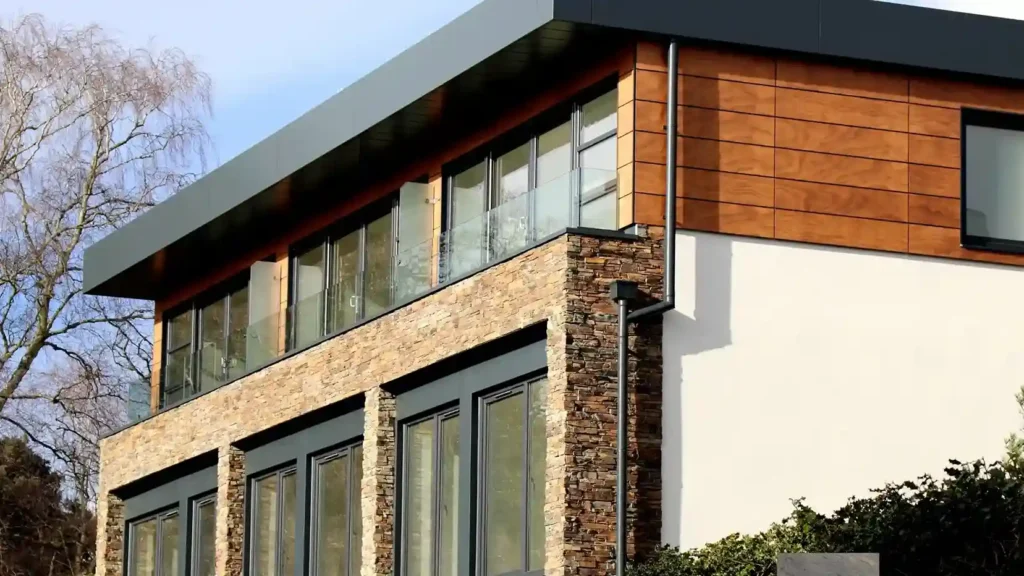Types of Stones Used in Constructions: Everything You Need to Know
The construction of solid structures has depended heavily on stones since ancient times. Natural materials with such strength and long life are highly valued. People construct houses, monuments, or roads and thus require a strong material, not only in function but also aesthetically. In this blog, we will cover the types of stones used in construction, explain how many types of stone exist, and guide you through selecting the best stone for your project.
Learn more about how stones have been used in construction over time in this article.
How Many Types of Stones Are Used in Construction?
You might be wondering how many types of stone are used in construction. The answer is not straightforward, as there are various types of stones, each for different purposes. However, these stones can be broadly categorized into several types, based on their formation, structure, and usage. Let’s look at the various types of stones that are commonly used in construction.
1. Granite
Granite is perhaps one of the most durable types of stone applied in construction works. It forms from the slow crystallization process of magma found beneath the surface of the earth. It has a hardness which makes it well suited for busy areas such as flooring, countertop, or even foundation constructions.
Applications:
- Flooring
- Countertop
- Monuments
- Roadworks
Advantages:
- Very robust
- Scratch and stain proof
- Low upkeep
Disadvantages:
- Pretty costly
- Is heavy and very demanding on supporting structures during setup
Granite is a popular choice for many construction projects. Read more about it here.
2. Limestone
Limestone is a sedimentary rock that is widely used in construction. It is formed by the accumulation of mineral and organic particles over time. This stone is softer than granite but still provides enough strength for most construction purposes.
Uses:
- Building blocks
- Production of cement
- Decorative stone
Advantages:
- Easy to cut and shape
- Readily available
- Cost-effective
Disadvantages:
- Prone to weathering over time
- Not as strong as granite
Find out why limestone is so versatile for building here.
3. Sandstone
Another sedimentary rock commonly used in construction is sandstone. It is made up of compacted grains of sand and it comes in different colours, which include beige, brown, and red. Sandstone is mostly applied with an aesthetic purpose besides its strength too.
Uses:
- Facades
- Paving
- Landscaping
Advantages:
- It has a beautiful appearance with lots of variety in the colour
- It is easier to work with compared to more robust stones
- Perfect for both interior and exterior application
Disadvantages:
- Subject to weathering
- Softer than other building stones
Discover why sandstone is loved for its beauty and strength here.
4. Marble
Marble is a metamorphic rock used in construction since thousands of years. Its aesthetic appeal, smoothness, and wide range of colors make it an excellent choice for upscale buildings and sculptures. Marble, however, is not the most practical material for heavy-duty construction.
Applications:
- Flooring
- Countertops
- Sculptures and decorative items
Advantages:
- Luxurious look
- Classic and elegant
- Polishes well
Disadvantages:
- Easily scratched and stained
- Expensive
Learn more about the elegant use of marble in construction here.
5. Slate
It is another metamorphic rock made through the compression of clay. The surface of the slate is extremely smooth and with thin layers that make it perfectly suitable for use in roofing and flooring. Additionally, it’s used because it can be split into sheets in a wide range of textures and colors.
Applications:
- Roofing
- Flooring
- Chalkboards
Advantages:
- Very long-lasting
- Incombustible
- Installation easy
Disadvantages:
- Very brittle, liable to crack up
- Quite pricey compared to the other stones.
Read about the uses of slate for roofing and flooring here.
6. Basalt
Basalt is a type of igneous rock and is mainly applied to construction as well as in the building of roads. The dark-colored fine grained, which is said to be tough with resistance towards weathering.
Uses:
- Pavement
- Road building
- Building construction
Advantages:
- Extremely tough and hard
- Resists erosion and weathering
- For tough environment
Disadvantages:
- Cannot be easily cut and fashioned
- Lacks attractive appearance
Find out why basalt is a tough and reliable choice for construction here.
Stone Material Diversity: Natural and Man-made Stones
When considering stone material options, it is essential to understand the difference between natural stones and manufactured stones.
Natural Stones: These include granite, limestone, marble, slate, and others. They are quarried from the Earth and have natural textures, patterns, and colors that add to their aesthetic value.
Manufactured Stones: These are man-made materials, in the form of engineered stones. Crushed stones along with resins and other materials form the ground. More affordable and versatile, yet this type of stone will have the appearance of natural stone.
Select the Best Stone for Construction
Determining the best stone will be contingent upon the specifications of your project. First and foremost, consider the location, climate, as well as the aim of the project.
Here are some guidelines for picking the right stone:
For Durability: If you are looking for something for durability, granite is good because it can last long, and so does basalt.
Aesthetical Value: Beauty in colors and texture may be seen through the availability of colors and texture found in marble, slate, and sandstone.
For budget-friendly options: Limestone and sandstone is available within reasonable costs with suitable functionality to achieve construction for the majority.
Variety in Types of Stones Available for Construction
Such a variety of stone is available in construction that there’s a perfect material for every type of building project. Whether you need a strong foundation, an elegant façade, or durable paving, stones provide versatility in both form and function.
Conclusion:
There are several types of stones used in construction, each type having its distinct characteristics and benefits. From the hardness and durability of granite to the beauty and elegance of marble, stones have been the material of choice for generations. Dealing with types of stones and rocks will lead you to the best decision for your construction project to be effectively constructed with structure and strength both in beauty and sustainability. Regardless of the choice of building material, road, or even just for decoration, the diversity in types of stones provides you with a wide variety that suits all your needs.

FAQs on types of stones used in construction
- The most common kinds of stones are?
Most of the common stones consist of granite, limestone, sandstone, marble, and slate. All have their distinct characters, making the use of particular stones more significant for different constructions.
Which stone is best suited for the foundation?
Granite and basalt are the best stones used for the foundation as they are resistant to weathering and have a high durability.
Can I use marble for exterior construction?
Although marble is exquisite, it cannot be used in exterior construction due to its weathering and staining susceptibility in a harsh climate. It is mostly used indoors on floors and countertops.



